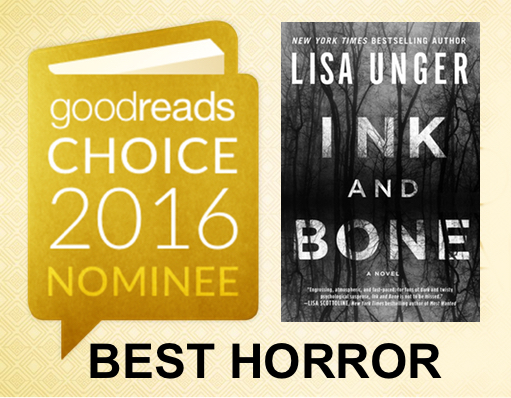Lisa Unger's Blog, page 8
November 16, 2016
Goodreads Choice Awards Finalist
Woo hoo! INK AND BONE is a finalist in the Goodreads Choice Awards. Thanks so much to my readers — I’m so grateful to have come this far. Hope you’ll consider voting just ONE last time in this final round!
From Goodreads:
It’s all come down to this, the final battle for the best books of the year.
Or, as we like to call it: The Final Round of the 2016 Goodreads Choice Awards!
In the first two rounds of this year’s Choice Awards, you cast 2.1 million votes (which also included your 30,000 write-in nominations). Those votes have been tallied and now we’ve narrowed down the field from 20 to ten favorites in each of the 20 genres.
The Final Round polls close November 27, and winners will be announced December 6. So, don’t squander your last chance to vote!
November 2, 2016
Goodreads Choice Awards 2016 Nominee!
Wow, I’m over the moon to share that INK AND BONE is a Goodreads Choice Awards 2016 Nominee for Best Horror Novel of the Year! Honestly, this is the award that means the most to me, because it’s all about readers and what they chose as their favorites for the year. So really, this award is about you.
And now it’s really about you!
Please click on the link below to cast your vote for INK AND BONE, and help it become a semi-finalist!
VOTE NOW
Thank you so much for all of your support! A writer is nothing without her reader pals, and I appreciate you more than I can say!
Thanks for reading and for voting,
L
October 27, 2016
Chris Pavone and Lisa Unger, in Conversation
Most of the time, authors are alone. To complete a novel, one must be comfortable with solitude. In fact, one must even be happy to log hours with head bent in silence, fingers to the keyboard. But on the other side of publication, authors often have to put on our extrovert hats and get out into the world – book tours, speaking engagements, conferences. At Bouchercon (world’s biggest mystery writers and readers convention) this past September, I bumped into author Chris Pavone for the third time this year. We met at the Tucson Book Festival in March. He came to my booksigning for INK AND BONE at Mysterious Bookshop in New York City. And then we ran into each other at a party in New Orleans. We’ve had a number of interesting, if brief, conversations about how often Labradoodles need to be bathed, introversion vs. extroversion, and balancing career and family life.
I thought those conversations were a little too short, so I invited Chris, New York Times bestselling author of THE TRAVELERS to be my pen pal for a week or so.

Lisa Unger: So, you and I have bumped into each other a couple of times this year, as authors do, at conferences and book events. And during a party at Bouchercon just this past week, we wound up having a chat about introversion. I’m an introvert — which doesn’t mean I’m shy or can’t speak in public — but it does mean I’m drained by social contact, nourished by solitude. In other words, I’d rather be at my desk writing than almost anywhere else. It’s my opinion that most writers are introverts — otherwise we wouldn’t be able to log the solitary hours necessary to write. Do you agree? Do you consider yourself an introvert? In a profession which requires a great deal of alone time, as well as the ability to get out and talk about the work, how do you find balance?
Chris Pavone: We were speaking at around 6:00 p.m. on a night when I ended up staying out till 4:00 a.m.! I’m no introvert. For two decades I worked full-time office jobs in the publishing business, and the main thing I miss about that life is having colleagues–people to talk to day in and day out, to have lunch with, to commiserate with. So my main goal at a conference like Bouchercon is to spend immense amounts of time with people. Which isn’t to say that I don’t find this level of social activity exhausting: leaving New Orleans, I was so relieved to not talk to a single soul all day. Sometimes I really want to be alone all day, especially when I’m in the thick of writing. I’m not the sort who talks about my works-in-progress, which I think drives my editors crazy. Do you talk through your novels while you’re writing? Plot, character, problems, solutions?
Lisa Unger: I know! You did stay out until 4am! Which is only an hour before I usually get up to write. I would have fallen asleep in a corner somewhere. I barely made it to 11.
No way. I never, ever talk about my work in progress. I feel like anything you say about the work drains its energy. I have a couple of people who may read while I’m writing, and I don’t mind hearing what their broad thoughts are, questions they have. But there’s almost no discussion about a novel in progress that is helpful. Because of the way I write, without an outline, with a voice in my head, with no idea how things are going to go day-to-day, the story needs time to evolve and take shape. Early input can really alter the course of the novel.
I guess the only talking I do is when I’m researching and interviewing people. I have a clinical psychiatrist who I might pester. I’ll send him emails — Hey! Do you have time to talk about addiction, or trauma, or fugue states? — or whatever I happen to be obsessed with or curious about. And then we’ll get on the phone and talk about those kinds of things. And I have a retired FBI agent off of whom I bounce various ideas and scenarios. And these kinds of conversations fuel and give inspiration, color, ideas to the writing that comes afterwards. But there’s never any actual talking about plot or character, or where the story might go. That’s all very internal.
One of the things I love about your books is the total authenticity with which you write about scenarios that are clearly divorced from your experience — a retired spy, turned stay-at-home mom living an as an expat in Luxembourg, a travel writer who gets pulled into an international web of intrigue. I heard Meryl Streep say in an interview that the she believes that within every person is the germ of every other person. Does that resonate with you? How do you connect with your characters and their situations? What type of research do you do to access the world your characters inhabit?
Chris Pavone: I agree with Meryl Streep! I think nearly all my characters are different versions of me–they think the same thoughts I do, they share the same concerns, they make the same sorts of decisions I would. This is true for the male and female characters, young and old, rich and poor; all me, wearing different shoes.
It helps that in my novels so far (I’ve written only three!) I haven’t strayed too far from my own real-life experiences. It’s true that I have never been a spy. But I have been a disenchanted expat trailing spouse living in Luxembourg (The Expats), and a conflicted middle-aged New York book editor (The Accident), and a married writer who travels a lot and stays out too late (The Travelers). I’ve been to the places my characters go–Mexico and Argentina, Italy and Spain, Sweden and Iceland, London and Copenhagen and (every year, every book) Paris, etc. I regularly get on a plane to someplace so I can write about it.
It also helps that my books don’t feature real villains. There are characters in conflict, and these conflicts sometimes escalate to lethal. But my goal is for these conflicts to read as the unfortunate confluence of the rational decision-making of self-interested characters, not as straight-up good vs. evil. What’s your approach to evil? To villains? To lethal violence?
Lisa Unger: That’s why I love doing this! I knew about the book editor bit and all the traveling you do as a writer, but not about your trailing spouse gig in Luxembourg.
Like you, I don’t think in terms of villains or heroes, good guys and bad guys. Mainly because these types of people don’t exist in the real world. Most of our lives are a mosaic of choices, good and bad. Some people make good choices most of the time, some make choices motivated by dark desires or appetites. But most people we might think of as villains are in conflict within — mentally ill, or the victims of trauma and abuse, perhaps brainwashed into a cause that escalates to violence. Life is rarely simple; and human motivation is the greatest mystery of all.
So most of my novels, most of my characters, center around the answering of questions I have about human nature. What makes some of us run toward danger in service of others, what makes others run in the opposite direction? What makes some of us lie, or cheat, or steal, or motivates us to find and punish the people who do so? Are we products of nature or nurture or — as I believe — some impossibly complicated helix of both of those things? So I approach each character — even the most deranged among them — with compassion, with respect and with curiosity. Likewise, I approach violence as a personal encounter, the moment between people when rational thought, language, respect have vanished and we are reduced to our most primal selves. Violence is ugly, quiet, deeply, darkly intimate — and ultimately pointless. I try to approach all violent encounters from that place, not idealizing it, or glorifying it, but showing it for what it is as unflinchingly as possible.
So obviously you’ve drawn on your life experiences, as we all do, to inform your novels. I, too, come from a publishing background. And while I have yet to mine that phase of my life for my fiction, those years were an education that has been invaluable in my life as an author. What did you learn in your years as a book editor that was most helpful in your writing life? Did you want to write before you were an editor? Or did your years of editing make you want to write?
Chris Pavone: I’d wanted to write a novel since college, which was one of the reasons I pursued a career in publishing. But I also wanted to have a separate freestanding occupation in its own right, something that could be satisfying whether or not I ever ended up writing. And I did love book publishing–not just the work itself, but especially the culture of the business, the people in it.
And that’s the main thing I learned that continues to be useful: almost everyone who works in publishing is doing it because they love books. It’s a low-paying, unglamorous business that’s headquartered in an exorbitantly expensive, notoriously difficult place to live. The work is relentless, the industry always seems to be on the verge of collapse. It’s not easy. No one is doing it to get rich (it’s literally impossible to get rich from being a book editor), and no one is doing it because they enjoy saying no to writers. No isn’t fun. People come to work hoping to say yes.
I don’t think my experience as a book editor helps me with the actual writing. But it does help me understand how my writing will be consumed within the business, so I bear a couple of things in mind: one is that many agents and editors HATE typos so much that they’ll simply throw away a sloppy manuscript. Another is that many of the people who are most important to the fate of any book might form their opinions–and make their crucial decisions–based on just the first few pages. Whatever’s good about any book ought to be evident from the opening scene.
And you? When did you get the itch to write a novel? Did your experience in the business help with your writing, or publishing, or anything? (Do I remember correctly that it was publicity?)
Lisa Unger: I love that answer, because it’s just perfect, true advice to aspiring writers. And you’re right — everyone in publishing is just head-over-heels in love with story. No one on earth is more excited by a great book than the editor who first holds that manuscript and knows it’s going to be something wonderful. I think a lot of aspiring writers imagine otherwise. But if you’ve written a great book, an editor somewhere is going to fall in love with it.
I have never wanted to do anything but write, as long as I can remember. Likewise, I think that’s why I went into publishing. I didn’t have the confidence to pursue my writing dreams, even though I began my first novel in college (unbelievably, that first book would later be published.) And I kind of had my dad’s voice in my head — and outside my head, too: Get a real job, kid. You’re off the payroll. So going into publishing was the closest I could get to my dream, without actually going for my dream. You’re right; it was publicity. And you’re also right that it’s a brutal industry in some ways. But I loved it, too. Still do!
It took years of being a closet writer — ten to be exact — to finish that first novel, all the while working in publicity, struggling to make ends meet in New York City. In a lot of ways, success at my job took me away from my writing — until I actually got serious about it. My years in publishing definitely didn’t help me get published once I had finished my first novel. But I think my knowledge of the industry helped me to understand the process better than most. I knew that publishing my first novel was just an open door, that I would have to roll up my sleeves and get to work. I knew I had to shed any ego I had, that there would be hills and valleys, setbacks, and rejections even after I’d been published. I knew it was harder to succeed as a published writer than it was to get published in the first place. So I was just ready to do the work.
So, what’s next for you?
Chris Pavone: I spent the past few months working on two very different novels. Both are books that I really want to write, but only one can be next. It’s a tough decision, isn’t it? Sometimes I worry that I don’t give this enough strategic thought: What book should I write? Who should the protagonist be? How should the new book be different from (or similar to) my previous ones? What sort of world should I build? What themes? And for all of these questions: WHY?
In the rational part of my brain, I know these answers will define me, my career. But in the irrational part of my brain, a story occurs to me, a character or two, and I start pursuing it, without necessarily asking myself if this is really what I should be working on. I firmly believe that the projects we reject–the ideas we choose not to engage–are a crucial part of the creative process. Do I reject enough of my ideas?
After back-and-forthing with my agent, we sent a hundred pages of one of these manuscripts to my publisher, and thankfully they like it. The protagonist of what will be my fourth novel is the same as my first’s–THE EXPATS–picking up Kate’s life a couple years later, in a completely different circumstance. It’s called THE PARIS DIVERSION.
What are you working on? How do you choose your projects? Do you belabor different possibilities, or do you just forge ahead when inspiration strikes?
Lisa Unger: Oh, great title! Sounds exciting. I’m working on my 2018 novel right now, and just turned in first pass pages for my April 2017 novel THE RED HUNTER. (Still not ready to talk about it!) I relate to many of your comments above.
For me, it’s character voice — there’s never a “story” or an “idea” that I pursue. Often the themes are only obvious to me after the book is written. There may, initially, be two competing projects, two strong voices in my head. Once or twice, I’ve submitted two projects to my editor and let her choose, but the other usually winds up being the next in line. I can’t work on two books at once, but I might have the other one simmering on the back burner, stirring the pot every now and then.
I write pretty much continuously, one project starting directly after the other. I don’t feel like I have much choice in the matter. If I’m not writing, I’m not happy. And I don’t do much strategizing or thinking about what I should write, or what is the “right” book, right now. Which might not be a good thing! I only know that I have to follow that urgent interest in character, and that character will reveal the story. If I’m chasing questions, characters, if I’m excited, waking up thinking about something, then that’s my novel. So far, I have written every novel this way.
ABOUT THE AUTHORS:
Chris Pavone’s first novel, THE EXPATS, was a New York Times bestseller, with twenty foreign editions and a major film deal, and received both the Edgar and Anthony awards for Best First Novel. THE ACCIDENT (2014) and THE TRAVELERS (2016) were also national bestsellers. Chris grew up in New York City and attended Midwood High School in Brooklyn and then Cornell University. He worked at a number of publishing houses over nearly two decades, mostly as an editor. He is married and the father of twin boys, and they all live in New York City.
Lisa Unger is the New York Times and internationally bestselling, award-winning author of fourteen novels, including her latest thriller INK AND BONE. Her books are published in twenty-six languages worldwide, have sold millions of copies and have been named “Best of the Year” or top picks by the Today show, Good Morning America, Entertainment Weekly, Amazon.com, Independent Booksellers, Milwaukee Journal-Sentinel and the Sun Sentinel to name a few. Her essays have appeared in the New York Times, Wall Street Journal, NPR and Travel+Leisure Magazine. Lisa Unger lives in Florida with her husband, daughter and labradoodle.
Chris Pavone and Lisa Unger in Conversation

Inhabiting Character, Art Imitating Life, and What Publishing Jobs Taught Us about Writing:
Lisa Unger in Conversation with Chris Pavone.
Most of the time, authors are alone. To complete a novel, one must be comfortable with solitude. In fact, one must even be happy to log hours with head bent in silence, fingers to the keyboard. But on the other side of publication, authors often have to put on our extrovert hats and get out into the world – book tours, speaking engagements, conferences. At Boucheron (world’s biggest mystery writers and readers convention) this past September, I bumped into author Chris Pavone for the third time this year. We met at the Tucson Book Festival in March. He came to my booksigning for INK AND BONE at Mysterious Bookshop in New York City. And then we ran into each other at a party in New Orleans. We’ve had a number of interesting, if brief, conversations about how often Labradoodles need to be bathed, introversion vs. extroversion, and balancing career and family life.
I thought those conversations were a little too short, so I invited Chris, New York Times bestselling author of THE EXPATS, THE ACCIDENT and THE TRAVELERS to be my pen pal for a week or so.
Lisa Unger: So, you and I have bumped into each other a couple of times this year, as authors do, at conferences and book events. And during a party at Bouchercon just this past week, we wound up having a chat about introversion. I’m an introvert — which doesn’t mean I’m shy or can’t speak in public — but it does mean I’m drained by social contact, nourished by solitude. In other words, I’d rather be at my desk writing than almost anywhere else. It’s my opinion that most writers are introverts — otherwise we wouldn’t be able to log the solitary hours necessary to write. Do you agree? Do you consider yourself an introvert? In a profession which requires a great deal of alone time, as well as the ability to get out and talk about the work, how do you find balance?
Chris Pavone: We were speaking at around 6:00 p.m. on a night when I ended up staying out till 4:00 a.m.! I’m no introvert. For two decades I worked full-time office jobs in the publishing business, and the main thing I miss about that life is having colleagues–people to talk to day in and day out, to have lunch with, to commiserate with. So my main goal at a conference like Bouchercon is to spend immense amounts of time with people. Which isn’t to say that I don’t find this level of social activity exhausting: leaving New Orleans, I was so relieved to not talk to a single soul all day. Sometimes I really want to be alone all day, especially when I’m in the thick of writing. I’m not the sort who talks about my works-in-progress, which I think drives my editors crazy. Do you talk through your novels while you’re writing? Plot, character, problems, solutions?
Lisa Unger: I know! You did stay out until 4! Which is only an hour before I usually get up to write. I would have fallen asleep in a corner somewhere. I barely made it to 11.
No way. I never, ever talk about my work in progress. I feel like anything you say about the work drains its energy. I have a couple of people who may read while I’m writing, and I don’t mind hearing what their broad thoughts are, questions they have. But there’s almost no discussion about a novel in progress that is helpful. Because of the way I write, without an outline, with a voice in my head, with no idea how things are going to go day-to-day, the story needs time to evolve and take shape. Early input can really alter the course of the novel.
I guess the only talking I do is when I’m researching and interviewing people. I have a clinical psychiatrist who I might pester. I’ll send him emails — Hey! Do you have time to talk about addiction, or trauma, or fugue states? — or whatever I happen to be obsessed with or curious about. And then we’ll get on the phone and talk about those kinds of things. And I have a retired FBI agent off of whom I bounce various ideas and scenarios. And these kinds of conversations fuel and give inspiration, color, ideas to the writing that comes afterwards. But there’s never any actual talking about plot or character, or where the story might go. That’s all very internal.
One of the things I love about your books is the total authenticity with which you write about scenarios that are clearly divorced from your experience — a retired spy, turned stay-at-home mom living an as an expat in Luxembourg, a travel writer who gets pulled into an international web of intrigue. I heard Meryl Streep say in an interview that the she believes that within every person is the germ of every other person. Does that resonate with you? How do you connect with your characters and their situations? What type of research do you do to access the world your characters inhabit?
Chris Pavone: I agree with Meryl Streep! I think nearly all my characters are different versions of me–they think the same thoughts I do, they share the same concerns, they make the same sorts of decisions I would. This is true for the male and female characters, young and old, rich and poor; all me, wearing different shoes.
It helps that in my novels so far (I’ve written only three!) I haven’t strayed too far from my own real-life experiences. It’s true that I have never been a spy. But I have been a disenchanted expat trailing spouse living in Luxembourg (The Expats), and a conflicted middle-aged New York book editor (The Accident), and a married writer who travels a lot and stays out too late (The Travelers). I’ve been to the places my characters go–Mexico and Argentina, Italy and Spain, Sweden and Iceland, London and Copenhagen and (every year, every book) Paris, etc. I regularly get on a plane to someplace so I can write about it.
It also helps that my books don’t feature real villains. There are characters in conflict, and these conflicts sometimes escalate to lethal. But my goal is for these conflicts to read as the unfortunate confluence of the rational decision-making of self-interested characters, not as straight-up good vs. evil. What’s your approach to evil? To villains? To lethal violence?
Lisa Unger: That’s why I love doing this! I knew about the book editor bit and all the traveling you do as a writer, but not about your trailing spouse gig in Luxembourg.
Like you, I don’t think in terms of villains or heroes, good guys and bad guys. Mainly because these types of people don’t exist in the real world. Most of our lives are a mosaic of choices, good and bad. Some people make good choices most of the time, some make choices motivated by dark desires or appetites. But most people we might think of as villains are in conflict within — mentally ill, or the victims of trauma and abuse, perhaps brainwashed into a cause that escalates to violence. Life is rarely simple; and human motivation is the greatest mystery of all.
So most of my novels, most of my characters, center around the answering of questions I have about human nature. What makes some of us run toward danger in service of others, what makes others run in the opposite direction? What makes some of us lie, or cheat, or steal, or motivates us to find and punish the people who do so? Are we products of nature or nurture or — as I believe — some impossibly complicated helix of both of those things? So I approach each character — even the most deranged among them — with compassion, with respect and with curiosity. Likewise, I approach violence as a personal encounter, the moment between people when rational thought, language, respect have vanished and we are reduced to our most primal selves. Violence is ugly, quiet, deeply, darkly intimate — and ultimately pointless. I try to approach all violent encounters from that place, not idealizing it, or glorifying it, but showing it for what it is as unflinchingly as possible.
So obviously you’ve drawn on your life experiences, as we all do, to inform your novels. I, too, come from a publishing background. And while I have yet to mine that phase of my life for my fiction, those years were an education that has been invaluable in my life as an author. What did you learn in your years as a book editor that was most helpful in your writing life? Did you want to write before you were an editor? Or did your years of editing make you want to write?
Chris Pavone: I’d wanted to write a novel since college, which was one of the reasons I pursued a career in publishing. But I also wanted to have a separate freestanding occupation in its own right, something that could be satisfying whether or not I ever ended up writing. And I did love book publishing–not just the work itself, but especially the culture of the business, the people in it.
And that’s the main thing I learned that continues to be useful: almost everyone who works in publishing is doing it because they love books. It’s a low-paying, unglamorous business that’s headquartered in an exorbitantly expensive, notoriously difficult place to live. The work is relentless, the industry always seems to be on the verge of collapse. It’s not easy. No one is doing it to get rich (it’s literally impossible to get rich from being a book editor), and no one is doing it because they enjoy saying no to writers. No isn’t fun. People come to work hoping to say yes.
I don’t think my experience as a book editor helps me with the actual writing. But it does help me understand how my writing will be consumed within the business, so I bear a couple of things in mind: one is that many agents and editors HATE typos so much that they’ll simply throw away a sloppy manuscript. Another is that many of the people who are most important to the fate of any book might form their opinions–and make their crucial decisions–based on just the first few pages. Whatever’s good about any book ought to be evident from the opening scene.
And you? When did you get the itch to write a novel? Did your experience in the business help with your writing, or publishing, or anything? (Do I remember correctly that it was publicity?)
Lisa Unger: I love that answer, because it’s just perfect, true advice to aspiring writers. And you’re right — everyone in publishing is just head-over-heels in love with story. No one on earth is more excited by a great book than the editor who first holds that manuscript and knows it’s going to be something wonderful. I think a lot of aspiring writers imagine otherwise. But if you’ve written a great book, an editor somewhere is going to fall in love with it.
I have never wanted to do anything but write, as long as I can remember. Likewise, I think that’s why I went into publishing. I didn’t have the confidence to pursue my writing dreams, even though I began my first novel in college (unbelievably, that first book would later be published.) And I kind of had my dad’s voice in my head — and outside my head, too: Get a real job, kid. You’re off the payroll. So going into publishing was the closest I could get to my dream, without actually going for my dream. You’re right; it was publicity. And you’re also right that it’s a brutal industry in some ways. But I loved it, too. Still do!
It took years of being a closet writer — ten to be exact — to finish that first novel, all the while working in publicity, struggling to make ends meet in New York City. In a lot of ways, success at my job took me away from my writing — until I actually got serious about it. My years in publishing definitely didn’t help me get published once I had finished my first novel. But I think my knowledge of the industry helped me to understand the process better than most. I knew that publishing my first novel was just an open door, that I would have to roll up my sleeves and get to work. I knew I had to shed any ego I had, that there would be hills and valleys, setbacks, and rejections even after I’d been published. I knew it was harder to succeed as a published writer than it was to get published in the first place. So I was just ready to do the work.
So, what’s next for you?
Chris Pavone: I spent the past few months working on two very different novels. Both are books that I really want to write, but only one can be next. It’s a tough decision, isn’t it? Sometimes I worry that I don’t give this enough strategic thought: What book should I write? Who should the protagonist be? How should the new book be different from (or similar to) my previous ones? What sort of world should I build? What themes? And for all of these questions: WHY?
In the rational part of my brain, I know these answers will define me, my career. But in the irrational part of my brain, a story occurs to me, a character or two, and I start pursuing it, without necessarily asking myself if this is really what I should be working on. I firmly believe that the projects we reject–the ideas we choose not to engage–are a crucial part of the creative process. Do I reject enough of my ideas?
After back-and-forthing with my agent, we sent a hundred pages of one of these manuscripts to my publisher, and thankfully they like it. The protagonist of what will be my fourth novel is the same as my first’s–THE EXPATS–picking up Kate’s life a couple years later, in a completely different circumstance. It’s called THE PARIS DIVERSION.
What are you working on? How do you choose your projects? Do you belabor different possibilities, or do you just forge ahead when inspiration strikes?
Lisa Unger: Oh, great title! Sounds exciting. I’m working on my 2018 novel right now, and just turned in first pass pages for my April 2017 novel THE RED HUNTER. (Still not ready to talk about it!) I relate to many of your comments above.
For me, it’s character voice — there’s never a “story” or an “idea” that I pursue. Often the themes are only obvious to me after the book is written. There may, initially, be two competing projects, two strong voices in my head. Once or twice, I’ve submitted two projects to my editor and let her choose, but the other usually winds up being the next in line. I can’t work on two books at once, but I might have the other one simmering on the back burner, stirring the pot every now and then.
I write pretty much continuously, one project starting directly after the other. I don’t feel like I have much choice in the matter. If I’m not writing, I’m not happy. And I don’t do much strategizing or thinking about what I should write, or what is the “right” book, right now. Which might not be a good thing! I only know that I have to follow that urgent interest in character, and that character will reveal the story. If I’m chasing questions, characters, if I’m excited, waking up thinking about something, then that’s my novel. So far, I have written every novel this way.
ABOUT THE AUTHORS:
Chris Pavone’s first novel, THE EXPATS, was a New York Times bestseller, with twenty foreign editions and a major film deal, and received both the Edgar and Anthony awards for Best First Novel. THE ACCIDENT (2014) and THE TRAVELERS (2016) were also national bestsellers. Chris grew up in New York City and attended Midwood High School in Brooklyn and then Cornell University. He worked at a number of publishing houses over nearly two decades, mostly as an editor. He is married and the father of twin boys, and they all live in New York City.
Lisa Unger is the New York Times and internationally bestselling, award-winning author of fourteen novels, including her latest thriller INK AND BONE. Her books are published in twenty-six languages worldwide, have sold millions of copies and have been named “Best of the Year” or top picks by the Today show, Good Morning America, Entertainment Weekly, Amazon.com, Independent Booksellers, Milwaukee Journal-Sentinel and the Sun Sentinel to name a few. Her essays have appeared in the New York Times, Wall Street Journal, NPR and Travel+Leisure Magazine. Lisa Unger lives in Florida with her husband, daughter and labradoodle.
July 25, 2016
Book Tour – A Note of Thanks!
I’m back home now after a fantastic book tour for INK AND BONE. The last couple of months were a whirlwind. Wow! Thanks to everyone — booksellers, librarians, media, author pals, reader friends, and family — who turned out for my events up and down the east coast. Some were huge, some were more intimate. Every single one was special in some way. I loved chatting about the book, spending time on stage with such stellar authors as Allison Leotta, Lisa Lutz, and Pam Iorio (former mayor of Tampa), and most of all connecting with readers who went out of their way to attend the book signings. I felt very blessed and humbled. Thank you!
I took a million selfies with friends on the road this year! But, here are some of my faves with Lisa Lutz, Megan Abbott, Chris Pavone at Mysterious Bookshop; Pam Iorio, Susana Weymouth, Sean Daly, and some of my special reader pals at The Dali; Allison Leotta and David Magayna with Mystery Loves Company in Maryland; Craig Pittman and Colette Bancroft (Tampa Bay Times) at Inkwood Books for the first ever “Weird Night”; ABC Action News with Carley Boyette; Books-A-Million Kissimmee, Barnes and Noble Christiana Mall. And one of my all-time favorite review headlines… Creepiness from King and Unger!
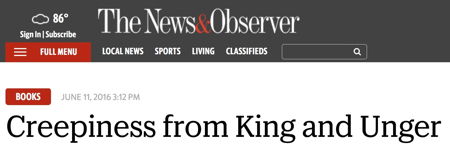
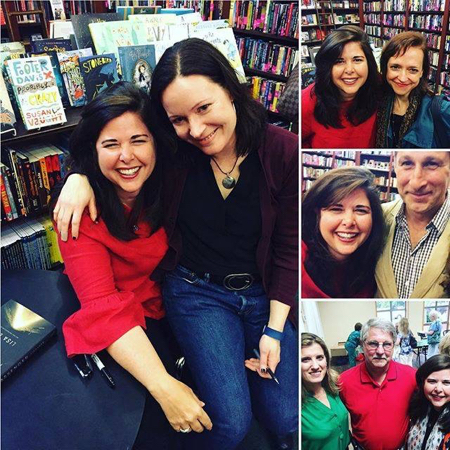
Lisa Lutz, Megan Abbott, Chris Pavone, Allison Leotta, David Magayna and Lisa Unger
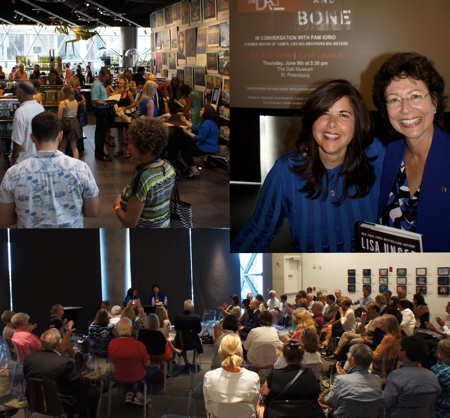
Lisa Unger and Pam Iorio with a full house of reader pals at The Dali.

Sean Daly, Susana Weymouth, Pami Iorio and Lisa Unger at The Dali

ABC Action News – Tampa Bay’s Morning Blend with Carley Boyette and New York Times bestselling author Lisa Unger.
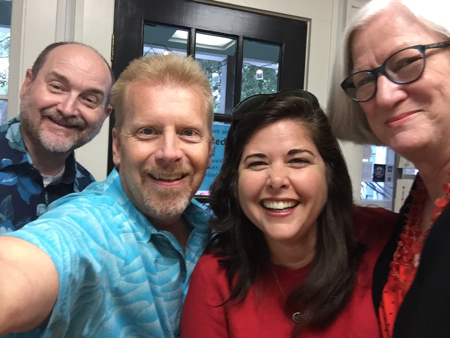
Craig Pittman and Colette Bancroft (Tampa Bay Times) with Lisa Unger. Inkwood Books Weird Night.
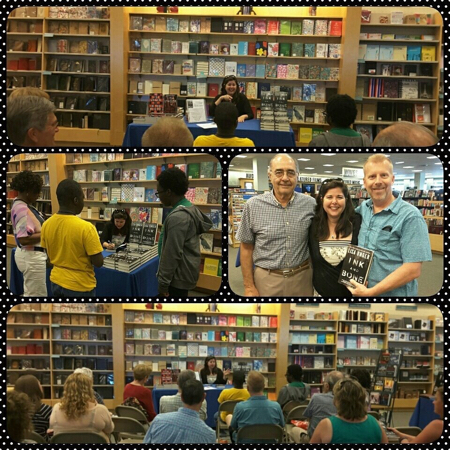
B&N Christiana Mall welcomes Lisa Unger
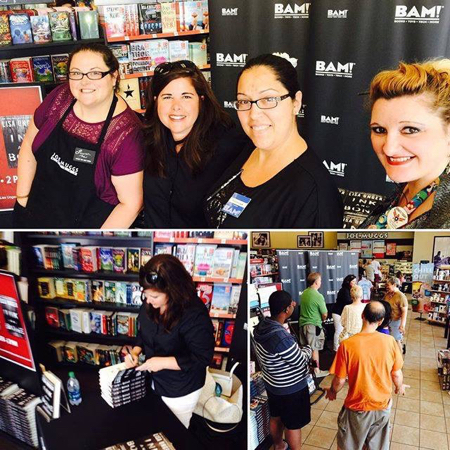
Lisa Unger at Books-A-Million Kissimmee, Florida.
May 4, 2016
Tess Gerritsen and Lisa Unger (Ghosts, Guns and Dark Places)
I am a long-time fan of New York Times bestselling author Tess Gerritsen. Not just because she’s a superstar writer, but also because she’s a truly lovely and generous person. She took time out of her crazy busy schedule to spend a week as my pen pal! What started off as a simple Q&A turned into a really deep conversation about process, psychology, research and the supernatural. Enjoy!
When authors get together there’s no telling what they’ll wind up discussing. When it’s acclaimed and bestselling thriller writers like Tess Gerritsen and Lisa Unger, you better believe they’re going dark and deep. From nightmares that turn into novels, to how thriller writers are often metabolizing the things that frighten them on the page, from research war stories, to the conflict between science and the supernatural, this conversation took some wild, twisty roads – just like their novels.
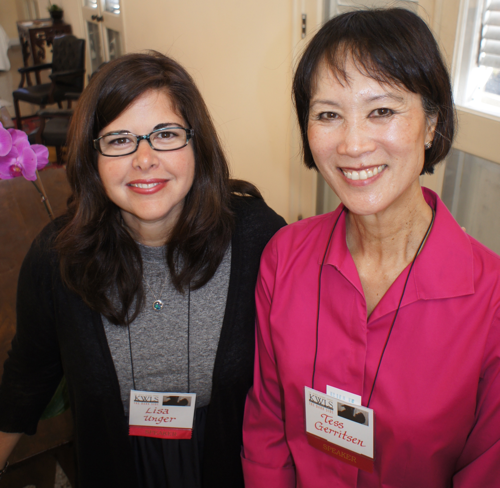
Tess Gerritsen and Lisa Unger at the 2014 Key West Literary Seminar
Lisa Unger: A couple of years ago, when I was writing FRAGILE, I ran into a character I wasn’t expecting, psychic Eloise Montgomery. I was excited about her. I thought: Oh! A psychic! Even if she’s a fraud, that’s still interesting. My characters have minds of their own, so I was disappointed when she only had a small part to play in that book. But but she stayed with me. She’s had a couple of books since then, three short stories, and in my upcoming INK AND BONE we meet her granddaughter Finley, who has powers of her own. Eloise’s story has told itself in a way that I wouldn’t have expected, and it has led me down some roads I didn’t imagine I’d go as a writer. Which is, of course, the joy and the magic of writing. So I was struck while reading PLAYING WITH FIRE that you, too, had walked into some of the same territory. Was it a character, or a story, or curiosity about something else that led you there?
Tess Gerritsen: It was a nightmare! I was in Venice for my birthday, and after a night drinking a bit too much wine, I had a freaky dream. I dreamt I was playing my violin. A baby was sitting nearby, and as I played a dark and disturbing melody, the baby’s eyes suddenly glowed red and she turned into a monster. I woke up wondering what it meant — and knowing there was a story here. Something about the power of music to haunt and to transform people. That day I wandered around Venice and ended up in the old Jewish quarter. There I saw memorial plaques dedicated to the Venice Jews who were deported to death camps during WWII. That’s when both parts of the novel came to me — a story about a 1930s Jewish composer whose haunting melody will nearly destroy the life of a woman violinist 70 years later. I’m already a violinist (strictly amateur) with a lifelong love of music, and that knowledge helped inform the musical aspects of the story.
I find that the interests and passions we’ve developed during our lives can both inform and inspire our novel writing. Was there anything from your own life that worked its way into INK AND BONE? Some part of yourself that slipped into the character or plot?
Lisa Unger: I love that, that an intersection of your dream life and your waking one led you to write PLAYING WITH FIRE. It’s so true to the way the process works for me, this blend of waking, dreaming, and imagining. The musical elements of your story are so rich and alive that I thought you must be a musician, or someone with a deep knowledge of music. Which is where, I suppose knowledge and passion move in.
There’s some blend of all of that, as well, in INK AND BONE. I have a fascination with the the idea of psychic phenomena in the Jungian sense, that it might be considered a natural extension of normal human ability. In my other life in publishing, I had a chance to work with psychic John Edwards. And I was struck both by his abilities and how normal he was, how he could just be your cousin from Long Island. In a weird way, though this was many years ago, he was the inspiration for Eloise Montgomery. The fictional town in which INK AND BONE is set, The Hollows, first showed up in FRAGILE, which was very loosely based on a real event from my past. Though I didn’t see it at the time, The Hollows shares certain similarities with the place where I grew up. So, in a lot of ways I suppose I’m dreaming on the page, the real and the imagined get twisted into fiction.
History plays a big role in INK AND BONE, the history of The Hollows and the way the energy of dark deeds has pooled up there. For me, dark, unresolved histories always bring to mind ghosts and the haunting of the present by the past. So it’s true with PLAYING WITH FIRE. Obviously, your medical training has informed many of your fantastic novels, but did that doctor’s mind resist the idea of ghosts and haunting, or inform it any way?
Tess Gerritsen: I’m afraid my science training prevents me from straying too far into the paranormal. I always (boringly enough!) want a logical explanation for everything. In that regard, my character Dr. Maura Isles is very much like me; we both want science to give us all the answers, and we’re bothered when it can’t. Ironically, I love reading paranormal fiction, and wish I could write it, but it’s like I have a form of writer’s block about it. Just when I’m on the verge of crossing over into a paranormal tale, that nagging scientist in my head yanks me back.
That’s why I’m so impressed by writers who can pull it off, and so convincingly. Your stories manage to merge the real and the spooky so perfectly, that I sometimes feel like I’m in the middle of a feverish dream when I’m reading them. I remember racing through CRAZY LOVE YOU and my sense of reality kept shifting in different directions. It’s as if you opened a psychic curtain and let us peek through into a universe that’s invisible to most of us.
I’m intrigued by the fact your character in INK AND BONE was inspired by your work with psychic John Edwards. I love hearing about the research that writers must do to make their stories convincing. In fact, research is the part I enjoy most about writing, because I can delve into new worlds. As a writer I’ve attended autopsies, watched the CT scan of a mummy, and scouted Boston for the best places to dump a body. I’m sure you have some interesting tales to tell as well. What lengths have you gone to to get the details right?
Lisa Unger: Wait! Don’t give too much away! I’m deeply engrossed in PLAYING WITH FIRE. Of course, I had an inkling that your scientist’s mind would resist the supernatural. But I do sense more than a passing curiosity, Dr. Gerritsen! Science and the supernatural are not necessarily at odds. There is so much we don’t know about the universe and the human mind; there are more questions than answers. I suppose I believe anything is possible, which might be why I’m willing to go into the unexplained with my characters.
I’m always amazed, in all of your books from HARVEST to GRAVITY, to the Rizzoli and Isles series at the depth of your knowledge about so many things. Most writers are explorers. I like to think of myself as a spelunker, shimming into the dark spaces between things I don’t understand to try find answers. So, yes, research (and life) are an important part of the process.
I’ve taken a concealed weapons course (and absolutely hated the feeling of firing a gun). I’ve interviewed a woman who claimed to be a ghost hunter. One of my closest friends is a retired Federal Agent who, if he doesn’t know the answers to my million questions, can always find someone who does. I lived with a New York City police officer for eight years – okay, so that was a relationship, and a pretty bad one at that. So lots of research there in all areas, but in the end I just wound up with a good knowledge of police work and fantastic recipe for roast pork — which I guess is something. I’ve been lava tubing in Iceland (not sure where that’s going to turn up, but I’m guessing it will). I spent five weeks in Prague while writing DIE FOR YOU. Recently, I’ve become obsessed with birds. I’m an information junkie. I’m constantly reading non-fiction in all areas with a special focus on psychology, addiction, trauma, biology and the brain. For me, more than the nuts and bolts of procedure, it’s human nature and the mind, and where those things intersect with nurture and spirituality, that fascinate me. Much of INK AND BONE is laced through with those themes.
Are there themes that you find come up again and again in your novels? Have you ever been surprised by a recurring question or idea that surfaces without your realizing it?
Tess Gerritsen: I love your research tales! I too hated firing a gun. I was painfully aware that if I was the slightest bit careless and didn’t stay in control of where it was pointed, someone could die. I also learned how difficult it is to be accurate with a handgun. I certainly understand how cops can fire a dozen rounds — and still miss their target.
When I’m writing, I’m thinking primarily about characters and plot, and it’s only in retrospect that I understand what the theme might be. You asked whether I’ve been surprised by recurring questions that seem to surface in my books, and the answer is: yes, absolutely. Thriller writer David Morrell once told me that novelists often address their own childhood traumas in their books. For instance, a writer who never felt his father loved him may write book after book about heroes trying to please authority figures. When Morrell told me that, a light bulb went on in my head, because I realized it was true for me as well. When I was a child, I adored a family friend named Uncle Mike, who served very much as a father figure for me. He was a gentle soul who counseled me about school, life, and love. Then when I turned eighteen, Uncle Mike was arrested for murdering his sister-in-law. I was stunned because I never saw that violent side of him, and it led me to question whether anyone is who they seem to be. That’s the theme I return to again and again — which smiling face hides the monster? In a way, it’s a universal theme for crime writers, the evil that lurks in the hearts of seemingly ordinary human beings.
Now I’ve reached a point in my career (I’m much older than you!) where I yearn to branch out and try new things in my stories. I feel the pressure of time, and wonder how many years do I have left to write stories that really matter to me. Playing With Fire was a departure for me because it isn’t a crime novel, but a book about music, history, and the Holocaust. For my readers, it was certainly unexpected, but for me as a writer, it was immensely satisfying to write. I would also love to write more screenplays (we’re in production now with my indie horror film “Island Zero”) as well as try my hand at young adult novels. Most writers have a secret “book of their heart” they’d like to write. Do you ever plan to divert from crime novels? Are there any projects that no one’s expecting from you, but that you’re itching to write?
Lisa Unger: I felt exactly the same way holding a gun. I was awed by the experience, the terrible responsibility, the potential to do the ultimate harm. I was aware already from my years dating a cop what a huge role adrenaline plays in decision making when there’s a gun in your hand, how lucky you are to be anywhere near accurate even with training. Still, experiencing it first hand was eye-opening, even in a controlled environment with no potential threat or danger. I was also saddened by the thought that here in my hand was something created for the sole purpose of killing another living being. It was a deeply affecting experience for me.
Very early in my career, I heard David Morrell speak and his wise words struck a chord with me, too. When I was fifteen, a girl I knew was abducted and murdered. We lived in a small, supposedly safe town, the kind of place you move to give your kids a happy, suburban upbringing. And then, on a day like any other day, a girl walking home from school fell victim to a monster. I never saw the world the same way again. The theme of the lost girl runs through almost all of my novels in one way or another, never with my intending it and always obvious to me only after the book is done. I think most of us are metabolizing fear on the page, and looking to put order to the chaos we perceive in the world. Maybe that’s why people read crime fiction, as well — because there’s a beginning, a middle, and an end where some kind of justice is served. Not always so in the real world.
I’m writing pretty close to the bone. I follow the voices in my head, and so far they’ve all been pretty dark and twisted, wrestling with questions of identity, struggling with everything from addiction to body dysmorphic disorder to hauntings. I have a voracious curiosity about people and all the different things that make us who we are. If someone else turns up with something different to explore, I’ll certainly honor that. For me that’s the joy of writing, following character voice wherever it takes me.
Wow! I’m excited about your indie horror film ISLAND ZERO. What a great title! I’m scared already. Can you tell us a little bit about it? And I think next up for you is a new Rizzoli and Isles entitled STRANGE GIRL. Any tidbits you would like to share?
Tess Gerritsen: I grew up loving horror films, especially those old classics like “Invasion of the Body Snatchers” and “Them,” and I’ve long thought it would be fun to make just such a film. My son Josh is already a filmmaker (documentaries) and we decided to do one together. I wrote the screenplay, about a group of hardy fishermen on a Maine island who suddenly find themselves cut off from the world when the ferry stops coming. The phones are dead and every boat they send to the mainland fails to return. Then dead bodies start turning up along the shoreline, and they realize they are “ground zero” for something terrible that’s about to happen to mankind. The project is in the capable hands of Josh and his producer, and we’ve got cast and crew from NYC, Boston, and L.A. now at work here in Maine. It’s a SAG production, so the actors are truly impressive. Despite the vagaries of Maine weather, they’re now four days into the shooting schedule, and it all looks fantastic. (And rather, um, gory, thanks to the magic of our special effects guy.)
At the same time, I’m at work on my 12th Rizzoli & Isles novel, STRANGE GIRL. I can’t share tidbits yet because the story keeps changing on me and I never know how it’s going to morph. That’s the trouble with writing by the seat of my pants — I never know where the ride will take me.
Your books are really dark and twisted, yet you’re a perfectly lovely woman — and a mom. How do you answer the question that I’m sure you’ve been asked: what’s WRONG with you, that you write such frightening fiction? Isn’t your husband afraid to come home to you at night? Do your books reflect some pathology in your personality? (Yeah, I get asked the same questions.)
Lisa Unger: There might be something essentially wrong with me! I’m not sure. All I know is that I’ve always had this twisted imagination, and have always been fascinated by the dark side. You know when you go to those horror movies that you love so much, and on the screen there’s a girl creeping down the stairs into the basement (from which some eerie noise is emanating) and everyone’s yelling: Don’t go down there! Get out of the house! I’m the girl going down the stairs, just because I want to – no, NEED to – know what’s there. And I don’t remember a time before I was a writer, so I guess these two essential elements of my nature have dovetailed to make me a writer of psychological suspense.
Motherhood has only made my imagination darker. Back to what we discussed earlier, maybe those of us with those kinds of thoughts seek to metabolize them on the page. Looking at INK AND BONE (I agree that you never really understand your book until it’s done) I can see how it addresses some of my most personal, deepest fears – about motherhood, protecting your child and teaching her how to protect herself, trusting yourself and your path, and how sometimes you have to walk the darkest roads to get to the light.
Tess Gerritsen is the acclaimed and New York Times bestselling author of PLAYING WITH FIRE and the upcoming STRANGE GIRL featuring homicide detective Jane Rizzoli and medical examiner Maura Isles (characters that inspired the TNT television series “Rizzoli and Isles.“) Lisa Unger is the award-winning New York Times bestselling author of fourteen novels of psychological suspense, including her latest release INK AND BONE. Both Tess Gerritsen and Lisa Unger have dark thoughts and very nice husbands who are never afraid to come home to them at night.
Ghosts, Guns and Dark Places: Tess Gerritsen and Lisa Unger in Conversation
I am a long-time fan of New York Times bestselling author Tess Gerritsen. Not just because she’s a superstar writer, but also because she’s a truly lovely and generous person. She took time out of her crazy busy schedule to spend a week as my pen pal! What started off as a simple Q&A turned into a really deep conversation about process, psychology, research and the supernatural. Enjoy!
When authors get together there’s no telling what they’ll wind up discussing. When it’s acclaimed and bestselling thriller writers like Tess Gerritsen and Lisa Unger, you better believe they’re going dark and deep. From nightmares that turn into novels, to how thriller writers are often metabolizing the things that frighten them on the page, from research war stories, to the conflict between science and the supernatural, this conversation took some wild, twisty roads – just like their novels.

Tess Gerritsen and Lisa Unger at the 2014 Key West Literary Seminar
Lisa Unger: A couple of years ago, when I was writing FRAGILE, I ran into a character I wasn’t expecting, psychic Eloise Montgomery. I was excited about her. I thought: Oh! A psychic! Even if she’s a fraud, that’s still interesting. My characters have minds of their own, so I was disappointed when she only had a small part to play in that book. But but she stayed with me. She’s had a couple of books since then, three short stories, and in my upcoming INK AND BONE we meet her granddaughter Finley, who has powers of her own. Eloise’s story has told itself in a way that I wouldn’t have expected, and it has led me down some roads I didn’t imagine I’d go as a writer. Which is, of course, the joy and the magic of writing. So I was struck while reading PLAYING WITH FIRE that you, too, had walked into some of the same territory. Was it a character, or a story, or curiosity about something else that led you there?
Tess Gerritsen: It was a nightmare! I was in Venice for my birthday, and after a night drinking a bit too much wine, I had a freaky dream. I dreamt I was playing my violin. A baby was sitting nearby, and as I played a dark and disturbing melody, the baby’s eyes suddenly glowed red and she turned into a monster. I woke up wondering what it meant — and knowing there was a story here. Something about the power of music to haunt and to transform people. That day I wandered around Venice and ended up in the old Jewish quarter. There I saw memorial plaques dedicated to the Venice Jews who were deported to death camps during WWII. That’s when both parts of the novel came to me — a story about a 1930s Jewish composer whose haunting melody will nearly destroy the life of a woman violinist 70 years later. I’m already a violinist (strictly amateur) with a lifelong love of music, and that knowledge helped inform the musical aspects of the story.
I find that the interests and passions we’ve developed during our lives can both inform and inspire our novel writing. Was there anything from your own life that worked its way into INK AND BONE? Some part of yourself that slipped into the character or plot?
Lisa Unger: I love that, that an intersection of your dream life and your waking one led you to write PLAYING WITH FIRE. It’s so true to the way the process works for me, this blend of waking, dreaming, and imagining. The musical elements of your story are so rich and alive that I thought you must be a musician, or someone with a deep knowledge of music. Which is where, I suppose knowledge and passion move in.
There’s some blend of all of that, as well, in INK AND BONE. I have a fascination with the the idea of psychic phenomena in the Jungian sense, that it might be considered a natural extension of normal human ability. In my other life in publishing, I had a chance to work with psychic John Edwards. And I was struck both by his abilities and how normal he was, how he could just be your cousin from Long Island. In a weird way, though this was many years ago, he was the inspiration for Eloise Montgomery. The fictional town in which INK AND BONE is set, The Hollows, first showed up in FRAGILE, which was very loosely based on a real event from my past. Though I didn’t see it at the time, The Hollows shares certain similarities with the place where I grew up. So, in a lot of ways I suppose I’m dreaming on the page, the real and the imagined get twisted into fiction.
History plays a big role in INK AND BONE, the history of The Hollows and the way the energy of dark deeds has pooled up there. For me, dark, unresolved histories always bring to mind ghosts and the haunting of the present by the past. So it’s true with PLAYING WITH FIRE. Obviously, your medical training has informed many of your fantastic novels, but did that doctor’s mind resist the idea of ghosts and haunting, or inform it any way?
Tess Gerritsen: I’m afraid my science training prevents me from straying too far into the paranormal. I always (boringly enough!) want a logical explanation for everything. In that regard, my character Dr. Maura Isles is very much like me; we both want science to give us all the answers, and we’re bothered when it can’t. Ironically, I love reading paranormal fiction, and wish I could write it, but it’s like I have a form of writer’s block about it. Just when I’m on the verge of crossing over into a paranormal tale, that nagging scientist in my head yanks me back.
That’s why I’m so impressed by writers who can pull it off, and so convincingly. Your stories manage to merge the real and the spooky so perfectly, that I sometimes feel like I’m in the middle of a feverish dream when I’m reading them. I remember racing through CRAZY LOVE YOU and my sense of reality kept shifting in different directions. It’s as if you opened a psychic curtain and let us peek through into a universe that’s invisible to most of us.
I’m intrigued by the fact your character in INK AND BONE was inspired by your work with psychic John Edwards. I love hearing about the research that writers must do to make their stories convincing. In fact, research is the part I enjoy most about writing, because I can delve into new worlds. As a writer I’ve attended autopsies, watched the CT scan of a mummy, and scouted Boston for the best places to dump a body. I’m sure you have some interesting tales to tell as well. What lengths have you gone to to get the details right?
Lisa Unger: Wait! Don’t give too much away! I’m deeply engrossed in PLAYING WITH FIRE. Of course, I had an inkling that your scientist’s mind would resist the supernatural. But I do sense more than a passing curiosity, Dr. Gerritsen! Science and the supernatural are not necessarily at odds. There is so much we don’t know about the universe and the human mind; there are more questions than answers. I suppose I believe anything is possible, which might be why I’m willing to go into the unexplained with my characters.
I’m always amazed, in all of your books from HARVEST to GRAVITY, to the Rizzoli and Isles series at the depth of your knowledge about so many things. Most writers are explorers. I like to think of myself as a spelunker, shimming into the dark spaces between things I don’t understand to try find answers. So, yes, research (and life) are an important part of the process.
I’ve taken a concealed weapons course (and absolutely hated the feeling of firing a gun). I’ve interviewed a woman who claimed to be a ghost hunter. One of my closest friends is a retired Federal Agent who, if he doesn’t know the answers to my million questions, can always find someone who does. I lived with a New York City police officer for eight years – okay, so that was a relationship, and a pretty bad one at that. So lots of research there in all areas, but in the end I just wound up with a good knowledge of police work and fantastic recipe for roast pork — which I guess is something. I’ve been lava tubing in Iceland (not sure where that’s going to turn up, but I’m guessing it will). I spent five weeks in Prague while writing DIE FOR YOU. Recently, I’ve become obsessed with birds. I’m an information junkie. I’m constantly reading non-fiction in all areas with a special focus on psychology, addiction, trauma, biology and the brain. For me, more than the nuts and bolts of procedure, it’s human nature and the mind, and where those things intersect with nurture and spirituality, that fascinate me. Much of INK AND BONE is laced through with those themes.
Are there themes that you find come up again and again in your novels? Have you ever been surprised by a recurring question or idea that surfaces without your realizing it?
Tess Gerritsen: I love your research tales! I too hated firing a gun. I was painfully aware that if I was the slightest bit careless and didn’t stay in control of where it was pointed, someone could die. I also learned how difficult it is to be accurate with a handgun. I certainly understand how cops can fire a dozen rounds — and still miss their target.
When I’m writing, I’m thinking primarily about characters and plot, and it’s only in retrospect that I understand what the theme might be. You asked whether I’ve been surprised by recurring questions that seem to surface in my books, and the answer is: yes, absolutely. Thriller writer David Morrell once told me that novelists often address their own childhood traumas in their books. For instance, a writer who never felt his father loved him may write book after book about heroes trying to please authority figures. When Morrell told me that, a light bulb went on in my head, because I realized it was true for me as well. When I was a child, I adored a family friend named Uncle Mike, who served very much as a father figure for me. He was a gentle soul who counseled me about school, life, and love. Then when I turned eighteen, Uncle Mike was arrested for murdering his sister-in-law. I was stunned because I never saw that violent side of him, and it led me to question whether anyone is who they seem to be. That’s the theme I return to again and again — which smiling face hides the monster? In a way, it’s a universal theme for crime writers, the evil that lurks in the hearts of seemingly ordinary human beings.
Now I’ve reached a point in my career (I’m much older than you!) where I yearn to branch out and try new things in my stories. I feel the pressure of time, and wonder how many years do I have left to write stories that really matter to me. Playing With Fire was a departure for me because it isn’t a crime novel, but a book about music, history, and the Holocaust. For my readers, it was certainly unexpected, but for me as a writer, it was immensely satisfying to write. I would also love to write more screenplays (we’re in production now with my indie horror film “Island Zero”) as well as try my hand at young adult novels. Most writers have a secret “book of their heart” they’d like to write. Do you ever plan to divert from crime novels? Are there any projects that no one’s expecting from you, but that you’re itching to write?
Lisa Unger: I felt exactly the same way holding a gun. I was awed by the experience, the terrible responsibility, the potential to do the ultimate harm. I was aware already from my years dating a cop what a huge role adrenaline plays in decision making when there’s a gun in your hand, how lucky you are to be anywhere near accurate even with training. Still, experiencing it first hand was eye-opening, even in a controlled environment with no potential threat or danger. I was also saddened by the thought that here in my hand was something created for the sole purpose of killing another living being. It was a deeply affecting experience for me.
Very early in my career, I heard David Morrell speak and his wise words struck a chord with me, too. When I was fifteen, a girl I knew was abducted and murdered. We lived in a small, supposedly safe town, the kind of place you move to give your kids a happy, suburban upbringing. And then, on a day like any other day, a girl walking home from school fell victim to a monster. I never saw the world the same way again. The theme of the lost girl runs through almost all of my novels in one way or another, never with my intending it and always obvious to me only after the book is done. I think most of us are metabolizing fear on the page, and looking to put order to the chaos we perceive in the world. Maybe that’s why people read crime fiction, as well — because there’s a beginning, a middle, and an end where some kind of justice is served. Not always so in the real world.
I’m writing pretty close to the bone. I follow the voices in my head, and so far they’ve all been pretty dark and twisted, wrestling with questions of identity, struggling with everything from addiction to body dysmorphic disorder to hauntings. I have a voracious curiosity about people and all the different things that make us who we are. If someone else turns up with something different to explore, I’ll certainly honor that. For me that’s the joy of writing, following character voice wherever it takes me.
Wow! I’m excited about your indie horror film ISLAND ZERO. What a great title! I’m scared already. Can you tell us a little bit about it? And I think next up for you is a new Rizzoli and Isles entitled STRANGE GIRL. Any tidbits you would like to share?
Tess Gerritsen: I grew up loving horror films, especially those old classics like “Invasion of the Body Snatchers” and “Them,” and I’ve long thought it would be fun to make just such a film. My son Josh is already a filmmaker (documentaries) and we decided to do one together. I wrote the screenplay, about a group of hardy fishermen on a Maine island who suddenly find themselves cut off from the world when the ferry stops coming. The phones are dead and every boat they send to the mainland fails to return. Then dead bodies start turning up along the shoreline, and they realize they are “ground zero” for something terrible that’s about to happen to mankind. The project is in the capable hands of Josh and his producer, and we’ve got cast and crew from NYC, Boston, and L.A. now at work here in Maine. It’s a SAG production, so the actors are truly impressive. Despite the vagaries of Maine weather, they’re now four days into the shooting schedule, and it all looks fantastic. (And rather, um, gory, thanks to the magic of our special effects guy.)
At the same time, I’m at work on my 12th Rizzoli & Isles novel, STRANGE GIRL. I can’t share tidbits yet because the story keeps changing on me and I never know how it’s going to morph. That’s the trouble with writing by the seat of my pants — I never know where the ride will take me.
Your books are really dark and twisted, yet you’re a perfectly lovely woman — and a mom. How do you answer the question that I’m sure you’ve been asked: what’s WRONG with you, that you write such frightening fiction? Isn’t your husband afraid to come home to you at night? Do your books reflect some pathology in your personality? (Yeah, I get asked the same questions.)
Lisa Unger: There might be something essentially wrong with me! I’m not sure. All I know is that I’ve always had this twisted imagination, and have always been fascinated by the dark side. You know when you go to those horror movies that you love so much, and on the screen there’s a girl creeping down the stairs into the basement (from which some eerie noise is emanating) and everyone’s yelling: Don’t go down there! Get out of the house! I’m the girl going down the stairs, just because I want to – no, NEED to – know what’s there. And I don’t remember a time before I was a writer, so I guess these two essential elements of my nature have dovetailed to make me a writer of psychological suspense.
Motherhood has only made my imagination darker. Back to what we discussed earlier, maybe those of us with those kinds of thoughts seek to metabolize them on the page. Looking at INK AND BONE (I agree that you never really understand your book until it’s done) I can see how it addresses some of my most personal, deepest fears – about motherhood, protecting your child and teaching her how to protect herself, trusting yourself and your path, and how sometimes you have to walk the darkest roads to get to the light.
Tess Gerritsen is the acclaimed and New York Times bestselling author of PLAYING WITH FIRE and the upcoming STRANGE GIRL featuring homicide detective Jane Rizzoli and medical examiner Maura Isles (characters that inspired the TNT television series “Rizzoli and Isles.“) Lisa Unger is the award-winning New York Times bestselling author of fourteen novels of psychological suspense, including her upcoming release INK AND BONE (June 7, 2016). Both authors have dark thoughts and very nice husbands who are never afraid to come home to them at night.
April 29, 2016
Support a Great Indie & Win!
One of my all-time favorite indie booksellers, Murder By the Book in Houston, Texas, was hit by the recent flooding. To help support this amazing store, I purchased a $100 gift certificate to give away to one of my lucky reader pals! To enter the drawing for your free $100 gift card, simply sign up for my mailing list below. Thanks for helping me support an important bookseller and good luck!
Email*
Random drawing on April 30.

April 12, 2016
Beautiful Lies – 10th Anniversary!
This month marks the 10th anniversary of Beautiful Lies!
To celebrate, I’m giving away 10 copies (1 in every 50 people wins!)
ENTER NOW

When Beautiful Lies was first released in April 2006, Random House put together a “behind the scenes” tour of Ridley’s New York City, narrated by yours truly. Check out The Walking Tour.
March 15, 2016
Tucson Festival of Books
What an absolutely amazing time at the 2016 Tucson Festival of Books! It was so great to see everyone, and meet some new author pals and readers. Lots of smart, fun and engaging conversations. Here are just a few pictures from the weekend with R.L. Stine, J.A. Jance, Lisa Lutz, T. Jefferson Parker, Thomas Perry, Chris Pavone, Joseph Finder, Jonathan Maberry, Chuck Wendig, William Kent Krueger, Christine Carbo and Carol Goodman.

Lisa Lutz, Joseph Finder, Chris Pavone & Lisa Unger
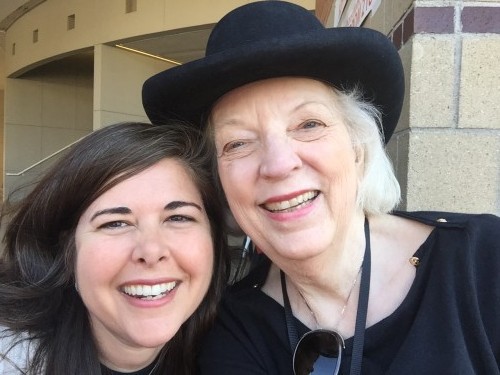
J.A. Jance & Lisa Unger
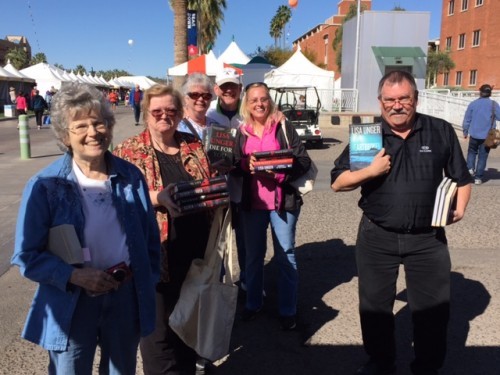
Lisa Unger Signing at Clues Unlimited

R.L. Stine & Lisa Unger

Chuck Wending, Jonathan Maberry & Lisa Unger
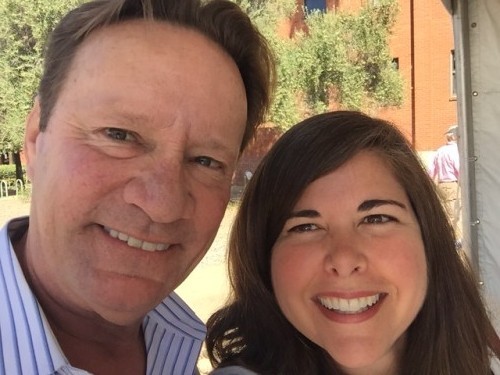
T. Jefferson Parker & Lisa Unger
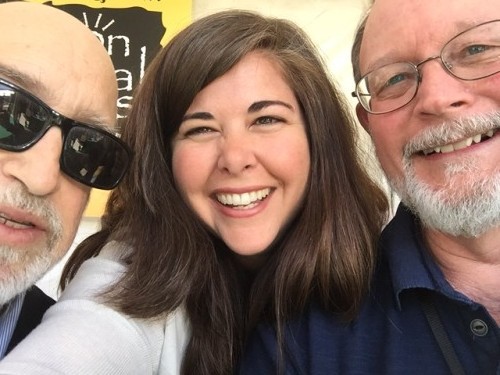
William Kent Krueger, Thomas Perry & Lisa Unger
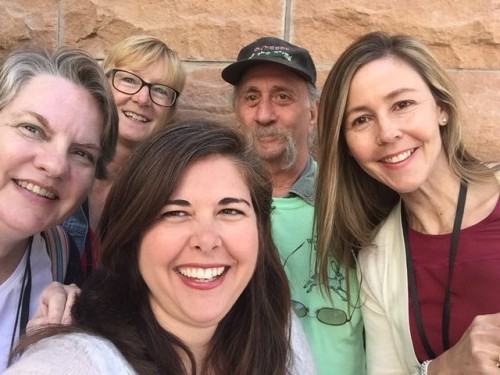
Carol Goodman, Christine Carbo & Lisa Unger


